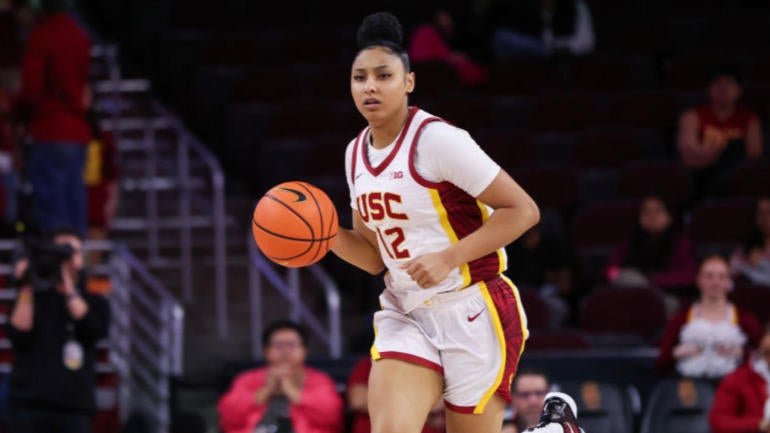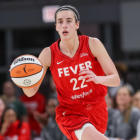
If USC star JuJu Watkins was entering the 2025 WNBA Draft, she very well might be the No. 1 overall pick, even with UConn's Paige Bueckers in the mix. In fact, Watkins would have been a lottery selection in 2024 after her stunning freshman season, and would have been a first-round pick coming out of high school in 2023.
Instead, she'll have to wait until 2027 to turn pro under the WNBA's current collective bargaining agreement. As it stands, domestic draft entrants must be at least 22 years old in the calendar year in which the draft takes place to be eligible. International prospects, on the other hand, only need to be 20 years old.
On Wednesday, Watkins made an appearance on "Good Game with Sarah Spain" and addressed the WNBA's age limit.
"I want to say personally I am enjoying my experience, Coach," Watkins said. "I definitely think we should have the option. There's just been such a growth in college basketball where it's like, why would you want to leave? Because you're able to have that experience and build your brand here in college as well. I would definitely say we should have the option but I think college is a way to prepare us for the pros as well. So, I don't know. It's a touchy subject, but I'm for it."
Watkins' answer may have been influenced by the fact that her college coach, Lindsay Gottlieb, was also on the show, but even so she made it clear that players should have the choice to turn pro early. Even though such a change wouldn't be great for Gottlieb, she agreed with Watkins and said that if it wasn't for the age limit being enshrined in the CBA it "wouldn't stand up in court."
Earlier this year, the Women's National Basketball Players Association voted to opt out of the current CBA at the end of the 2025 season and is already in talks with the league on a new CBA to avoid a potential work stoppage. It's unclear if lowering the age limit will be on the table, but it certainly could be.
To this point, there hasn't been much incentive to challenge the current system. With no guaranteed contracts for rookies, low salaries and limited roster spots, players have plenty of reasons to stay in school for four years and earn their degree. Now that the WNBA is surging in popularity, and expansion is on the way, that could change.
In the event the age limit gets lowered, there probably wouldn't be a huge surge of players leaving early. As Gottlieb pointed out, the "financial conversations are a lot more nuanced on the women's side than on the men's side."
"If you look at someone like Caitlin Clark, the platform of women's college basketball remains bigger, the eyes on the game remain bigger," Gottlieb continued. "So the deals that she gets coming into the W and the financial power she has is greater because of the platform she had those last two years in college. If she had left after her sophomore year, she would have been ready, basketball wise, but she wouldn't have brought what she brings."
Regardless of how many players would actually take advantage of a different system, both Watkins and Gottlieb were aligned on the idea that college players should have the ability to make that choice rather than being forced to wait until they turn 22.
"I'm with JuJu," Gottlieb said. "The right [to be able to go pro] should be there if they change the collective bargaining agreement."

















